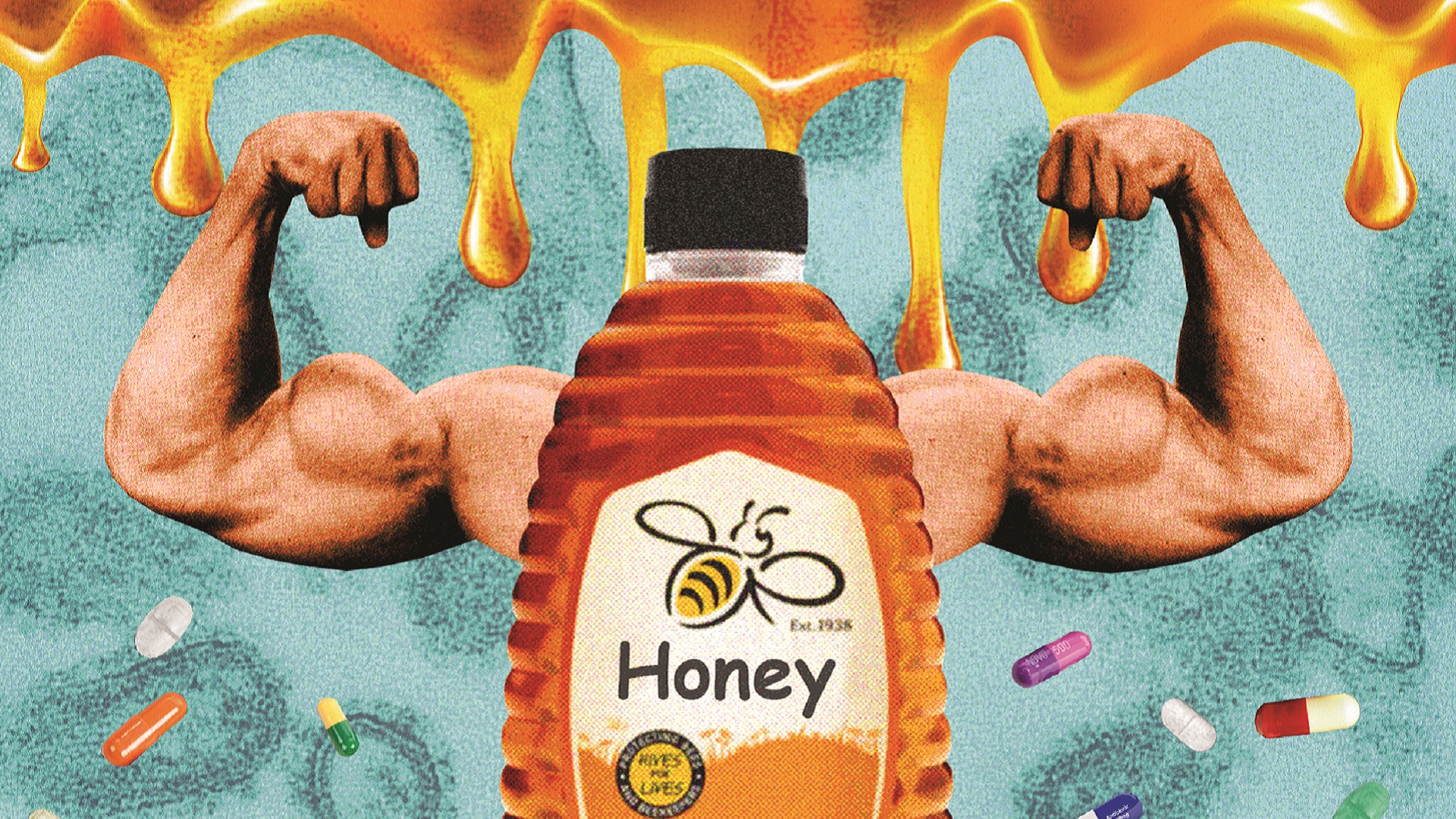How it was told
Many of us are more aware of our health this year, keeping an eye out for any symptom that could indicate a Covid-19 infection. But the usual coughs and colds are still doing the rounds of course, and in the current climate we’re keen to deal with them as quickly as possible.
That’s why headlines claiming consuming honey would do the trick better than taking antibiotics gained traction on August 19. The reports were based on a study carried out by scientists at the University of Oxford, published in the BMJ Evidence-Based Medicine journal, which was the first systematic review of how well honey treats upper respiratory tract symptoms.
And plenty of big publications carried the discovery that you should go for honey over medicine. The Guardian reported on the study with the headline: “Honey better treatment for coughs and colds than antibiotics, study claims”.
The Daily Mail, meanwhile, announced the welcome news for the sweet-toothed among us: “Honey ‘beats antibiotics’ for curing coughs or colds: New research shows it is more effective than medication”.
And hours later, the same paper referenced the study in the headline of an article encouraging readers to plunder their cupboards for wellness-boosting wonders: “High blood pressure? Bolt down beetroot! Now we know honey’s better than antibiotics for battling colds and coughs. But it’s just one of the wonder treatments in your own kitchen cupboard that could help you stay healthy”.
The Independent’s report got straight to the point, under the headline: “Honey may be more effective for treating respiratory symptoms than antibiotics, study claims”.
But does this hive of stories ring true, or do they just jar?
Facts. Checked
It’s true that honey will likely do more for your cold than antibiotics. But in most cases, so will throwing salt over your left shoulder – because antibiotics do nothing for upper respiratory viruses.
In fact, the focus of the findings is on avoiding antibiotics in the first place. The findings mean scientists can recommend doctors suggest honey to patients instead of prescribing antibiotics, which the study said is routinely done despite being ineffective.
This is because most coughs and sniffles are caused by a virus, while antibiotics can only fight bacterial infections. Yet if anything, the misleading headlines which ran alongside this report only entrenched public belief that antibiotics can be used to fend off a cold.
And though the scientists focused on honey as a treatment for the common cold, the crux of the issue is that alternatives are being sought in a bid to curb the rise of antibiotic resistance.
The NHS is focused on reducing the use of antibiotics after evidence showed their overuse in recent decades meant they were becoming less effective and gave way to superbugs like MRSA that are difficult to treat with antibiotics.
“Doctors often prescribe antibiotics for upper respiratory tract infections (URTIs), even when they could be fairly certain they might offer no clinical benefit, often due to a lack of alternative treatments and an earnest desire to help patients feel better,” said Dr Charlotte Albury, an Oxford researcher.
The point was to discourage doctors from prescribing antibiotics where they knew there would be no benefit. Now, thanks to their efforts, there is qualitative evidence available for GPs to feel confident when recommending honey to people feeling poorly. Honey certainly has its benefits – as well as having antibacterial properties, it’s cheap, easily available, and has few side effects. But of course, if it doesn’t do the trick and symptoms worsen, it’s time for a trip to your doctor.
“With the global spectre of antibiotic resistance looming, new treatments for URTIs that are effective and that doctors can recommend now are more important than ever,” said Hibatullah Abuelgasim, an Oxford medical student who completed the study.
Whether doctors could soon be recommending ginger root and chicken soup to their patients too is unclear, but it’s happy news for beekeepers and hoarse patients alike.
The study simply doesn’t suggest that honey is a replacement for antibiotics – a treatment that would likely have had no effect in the first place.










